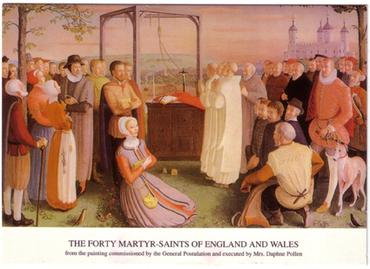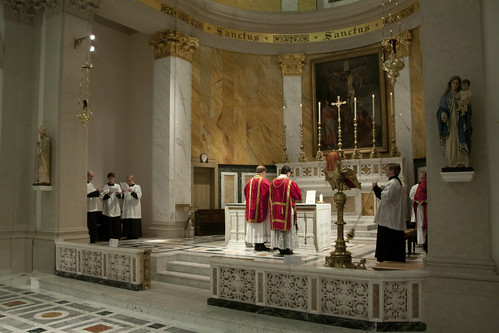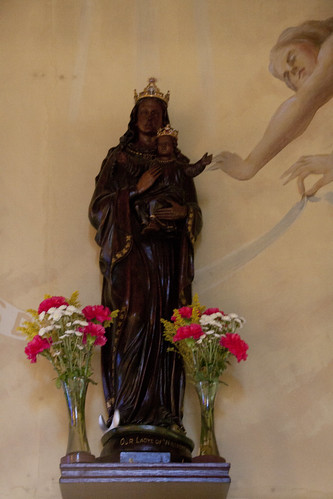News of their next conference, and a report on their last one.
PMMS Annual Conference ‘Music and Death before 1650’, Oxford, 10 March 2012
Next year’s Annual Conference will take place in Oxford at the Faculty of Music (St Aldate’s) on 10 March 2012. The event is co-organized by Elizabeth Eva Leach, Owen Rees and Catharine Bradley and will focus on the theme of ‘Music and Death before 1650’. Speakers will include, among others, Margaret Bent, Fabrice Fitch, Leofranc Holford-Strevens and Owen Rees.
Further particulars will be made available soon on the PMMS website (www.plainsong.org.uk), the PMMS Facebook group and the newsletter – so watch this space!
-------------------------------
‘From Text to Performance: medieval vernacular music in the 21st century’, Birmingham University, Barber Institute, 26 March 2011
The 2011 annual PMMS conference, organised by Mary O’Neill of the Centre for Early Music Performance & Research, as its title implies centred very much around questions of musical performance informed by scholarship; as such, it followed a workshop held at the Barber Institute on the previous day which unfortunately only a few conference participants had been able to attend.
Benjamin Bagby of Ensemble Sequentia opened the symposium with a presentation on his current project of performing the Beowulf epic, describing his attempts to reconstruct or re-imagine how this poem might have been sung. He described his experimental reconstruction of an early medieval Anglo-Saxon harp, its possible shape, range, tuning, and number of strings, based on observations of medieval mode, iconographic evidence, and deductions from the physical characteristics of wood and gut; this was complemented by observations on metre, rhyme, declamation and rhetorical aspects of the poem itself which informed the melodic shape and phrasing of his realisation. A demonstration of a section from the epic in which all these elements were brought together concluded the presentation.
Bagby’s presentation was followed by two papers on troubadours and trouvères; Peter Ricketts approached the topic from a philologist’s perspective, providing insights into his vast experience as an editor of medieval Occitan poetry and his occasional contacts with musicologists and performers attempting to come to terms with a repertoire much of which survives without musical notation. He deplored both the lack of real collaboration between textual and musical scholars in editing this repertoire and the lack of communication between philologists and performers, often leading to egregious errors in pronunciation, style, and mode of delivery. In her paper ‘From the scribe to the listener: some issues in Old French, Occitan and Galician-Portuguese song’, Mary O’Neill approached the same topic from the musical side; she pointed out even where musical notation does survive (which is the case for the Galician/Portuguese cantigas, far less so for Occitan poetry), one principal issue remains unresolved: while the pitches are straightforward to transcribe, the rhythms in non-mensural notation remain open to substantial interpretation by musicologists and modern-day performers. By giving a survey of previous and current approaches to this issue, she demonstrated how far scholarship still is from providing a robust underpinning to the practical execution of this repertoire.
After lunch, Uri Smilansky took a source-based approach to the question of performing 14th-century song in his paper entitled ‘Thinking, doing, feeling: ars subtilior and expression in medieval music’. Drawing on his own experience as a performer, he argued that there is much more to be gleaned from the page of a polyphonic music manuscript than pitches and rhythms; in particular, he demonstrated impressively how rhythmic-melodic gestures, in the way they occupy both musical space and the space on the written page, ‘translate’ the expression of the poetic text in a way which is immediately comprehensible to both performers and listeners. A counterpoint to this presentation was provided by Ian Rumbold who gave an overview over the repertoire of secular polyphony in the ‘St Emmeram’ codex (Munich, Bayerische Staatsbibliothek, Clm 14274) of c. 1440; Rumbold described the way in which German and French song, originals and contrafacta, local and international repertoire rubbed shoulders in this highly idiosyncratic collection of the German priest and scholar Hermann Pötzlinger.
The day was brought to a close by John Potter’s observations on ‘Finding a voice: a medieval singer in the 21st century’. Postulating a disjunction between musicologists who were, in his view, searching for absolute historical ‘truth’, and performers who were searching for artistic viability in the present, he charted his journey from a practitioner of ‘historically informed practice’ via his work on 19th-century singing styles to his recent and current experiments in the ‘Being Dufay’ project with the composer Ambrose Field where he had performed re-composed and re-imagined songs (and fragments of songs) by Guillaume Dufay for voice and electronics. Like the day as a whole, Potter’s presentation and the spirited discussion which followed it demonstrated how even after more than half a century of ‘HIP’ (and a discourse between scholars and performers which has been going on for much longer), much work is still to be done – some of it even fundamental – in finding truly common ground between the study of music and its performance.
Thomas Schmidt-Beste
 The
feast of St Helen is a 3rd Class feast in Liverpool and Salford, and St Helen is the co-titular of Brentwood Cathedral, so it is
celebrated in that Cathedral as well (First Class). St Helen, the finder of the True Cross and mother of the Emperor Constantine, was, of course, said to be a British princess. Britain played an important part in her son's life, since he was proclaimed Emperor at York; he went on to vindicate his claims in the ensuing civil war, and make Christianity the official religion of the Roman Empire. Evelyn Waugh's historical novel 'Helena' is a thoroughly enjoyable re-telling of St Helen's legend.
The
feast of St Helen is a 3rd Class feast in Liverpool and Salford, and St Helen is the co-titular of Brentwood Cathedral, so it is
celebrated in that Cathedral as well (First Class). St Helen, the finder of the True Cross and mother of the Emperor Constantine, was, of course, said to be a British princess. Britain played an important part in her son's life, since he was proclaimed Emperor at York; he went on to vindicate his claims in the ensuing civil war, and make Christianity the official religion of the Roman Empire. Evelyn Waugh's historical novel 'Helena' is a thoroughly enjoyable re-telling of St Helen's legend.















